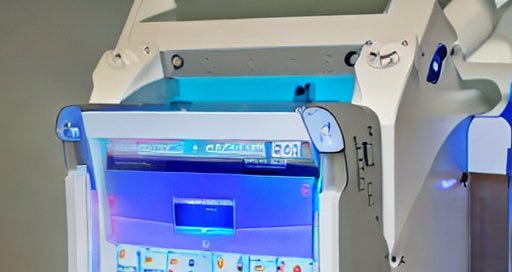Why Does Ion Torrent Still Exist??
I’m sure many of you find yourselves at AGBT, if not Keith has an excellent post describing the experience. But I know, I know you’re bored. Of course you’re bored otherwise you wouldn’t be reading substack posts.
You’re sitting in the bar… staring at your phone. With nothing to say about another boring incremental update from a boring incremental sequencing company.
Put your phone down (no, not yet. finish reading first!).
Look at the person across the bar.
Make eye-contact.
Now, while rhythmically banging the table slowly and firmly say…
WHY DOES ION TORRENT STILL EXIST?
It’s the perfect conversation starter!
Let’s explore this question a little ourselves to get us primed and ready for the sparkling conversation ahead of us.
Talking point 1: The Ion Torrent PGM was hugely successful.
In 2011 Life Tech stated that Ion Torrent sales “have exceeded our expectations on all measures” and that “At the rate we are placing instruments, the PGM will have the highest installed base of any next-generation sequencing instrument within the next 12 months”.
The MiSeq gained market share quickly but even after a couple of years Ion Torrent was still ahead having 1600 instruments placed as opposed to the Miseq’s 1100.
Most of this was down to Ion Torrent having a head start on the Miseq. But it shows that Illumina’s instruments were not addressing the requirements of lower-end users when the PGM was released, and that the instrument was useful and serving a real demand.
I think Ion Torrent shifted the market. And while Illumina might have eventually released something like the MiSeq anyway, it likely happened a lot sooner than it otherwise would have.
Talking point 2: What do people use them for anyway?
That’s all well and good, but it’s 2023. There are scientists operating sequencers today that weren’t even born when Ion Torrent was created.
As far as I can tell the answer is that Thermo sell some nice kits, bundling the platform with applications. For example Neo Genomics chose the Genexus seeming based on their collaboration with Thermo on an Oncology kit, and Life seem to have various FDA approved tests on the platform.
Ion Torrent instruments also still have a pretty fast turn around time, they used this as a selling point for COVID research applications. I was surprised how often Ion Torrent was used in COVID research papers, not really in larger studies, but with smaller users often at hospitals or health centers sequencing single patients.
I suspect Thermo supports these users well, providing solid field support, and integrated turnkey applications.
Life don’t really even seem to be selling the Genexus based on specs at all, but on applications. I have a hard time even finding a spec sheet for the platform. And I suspect the Genexus “specimen-to-report” platform is where they are strongest and see the bulk of their market.
The GeneStudio is a more traditional sequencer and I imagine not as compelling an offering. They suggest it has a 3h minimum run time though, which might just beat the fastest Miseq 4h runs (I suspect increased sample prep makes it a wash however).
Talking point 3: Yea, but how much longer can this go on?
Everything dies, only to be reborn and die again. So when is Ion Torrent going to die then?
Probably within the next 5 years. That’s my guess. I suspect Thermo will end up acquiring one of the up an coming next-gen “Illumina-like” platforms. The prep is generally easier, the data quality is better, and the cost-of-goods lower.
They can probably snap one up relatively cheaply as competition reduces margins.
So, go forth and converse! And let me know if you hear anything interesting!




